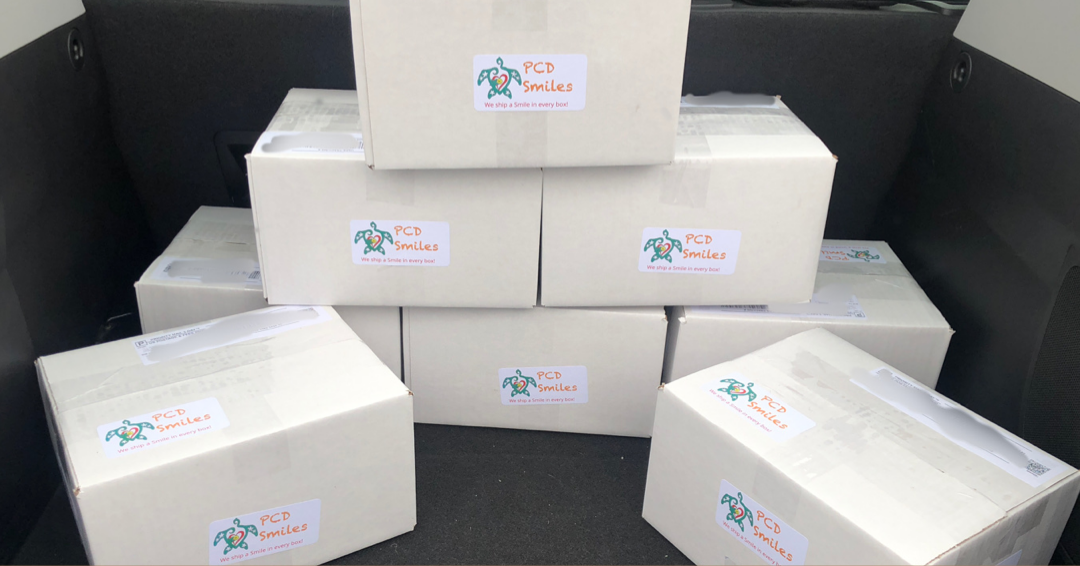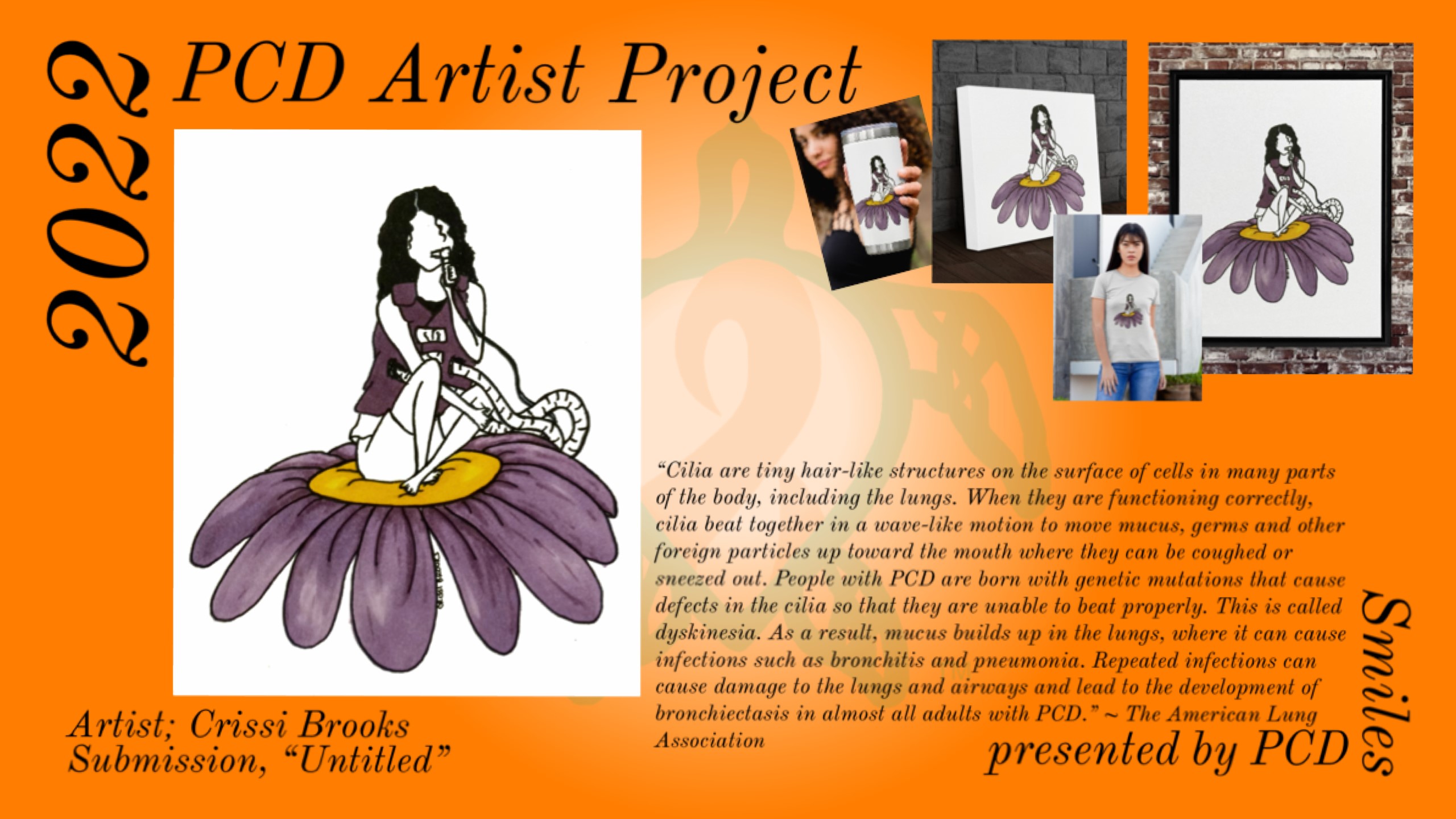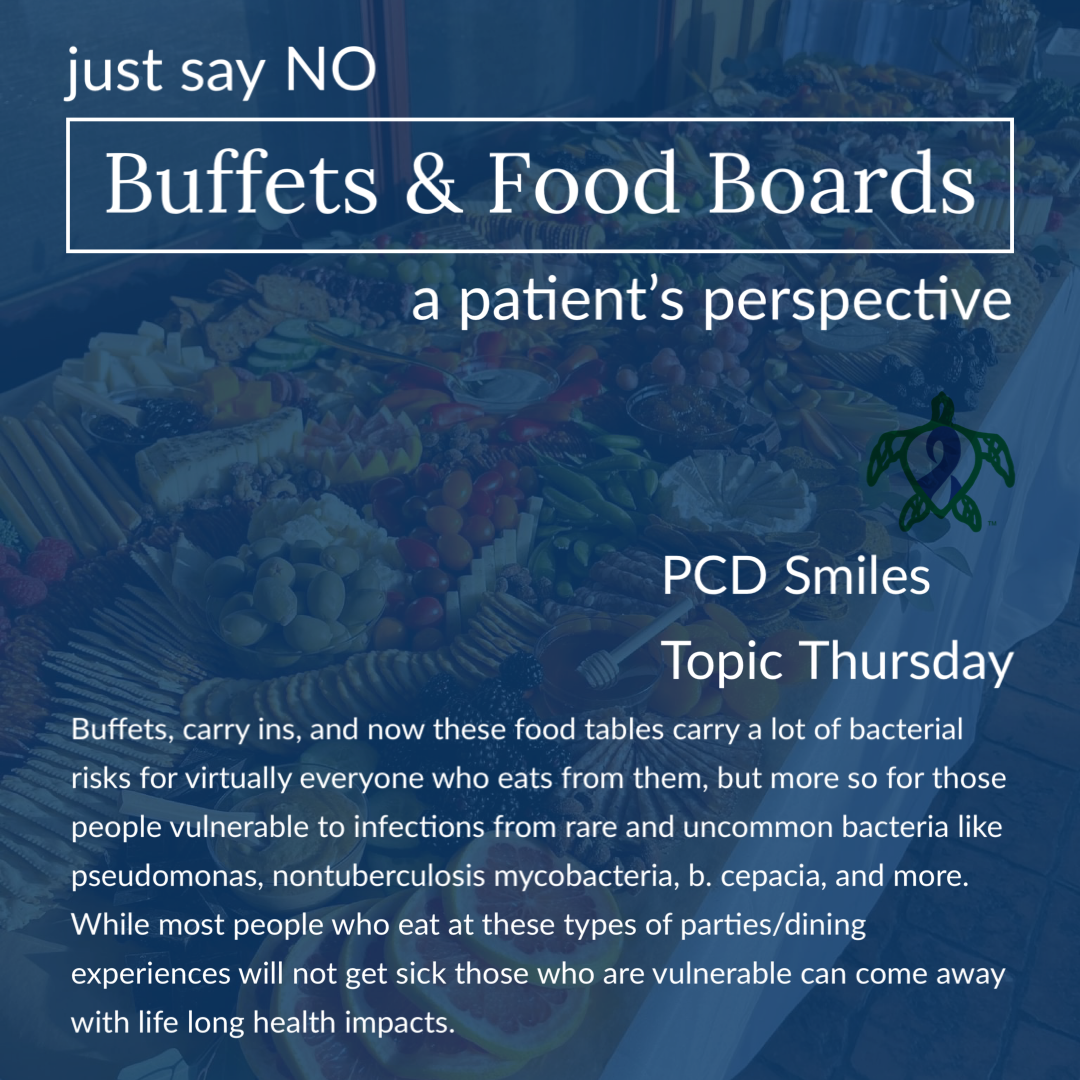A patient’s perspective from our Founder:
Well you all know me and know I like to talk about the little know areas of PCD life, like this new spin on buffet type meals; food boards. For most people food boards are awesome, for me it’s a nightmare… Let me explain.
Cross contamination of bacteria in PCD has had very little significant research and is a highly unknown area for PCD. However given the similarities in the pathophysiology of primary ciliary dyskinesia and cystic fibrosis caution is recommended by PCD experts. Recent research into the mechanisms behind the CFTR channel’s connection to needing properly working cilia to signal the CFTR channel to signal the need to transport water across the cell membrane to thin mucus can explain why the viscosity or consistency of mucus found in PCD affected airways mirrors the mucus found in CF affected airways. We then need to look at the bacteria found in the respective PCD and CF airways, we find that they mirror here as well. While lots more research needs to be done on cross contamination of bacteria between patients, it is already advised that CF and PCD patients not mix just as CF patients shouldn’t be around each other unless they live together (think siblings here). There have been guidelines put into place in regards to PCD patients being around other PCD patients at certain clinics, conferences, and other social functions, just as the CF Foundation guidelines for CF patients. This is especially true if the person with PCD is culturing certain bacteria like b.cepacia, nontuberculosis mycobacteria, or actively sick with any respiratory bacteria including pseudomonas.
These bacteria are all around us and there is not one single strategy that can keep us from these bacteria. Remember most of the general population will not get sick from these rare and uncommon bacteria. However, if you have a mucociliary clearance disorder like PCD or CF these bacteria can and will make you sick. Some of these bacteria can speed up disease progression, like pseudomonas, CF patients who contract pseudomonas decline at a faster rate. Again until recently there had been little study in this area of PCD. Breathing in these bacteria are not the only way that these bacteria can enter the airways of a respiratory patient. Did you know that reflux is one of the most common ways that nontuberculosis mycobacteria get into a person’s airways?
Gastroesophageal reflux is common in mucociliary clearance disorders like PCD due to forceful coughing weakening the lower esophageal sphincter allowing the stomach contents to regurgitate back up the esophagus and spilling into the airways. Silent reflux is common for any respiratory patient due to coughing. This reflux opens another avenue for bacteria laden food contents to enter and contaminate the airways. Bacteria like nontuberculosis mycobacteria, b. cepacia, even certain strains of pseudomonas are not killed by stomach acid, so these bacteria are refluxed back out into the esophagus and can spill into the respiratory tract. This is the reason that buffets and food carry ins are not recommended for the CF population. Buffets, carry ins, and now these food tables carry a lot of bacterial risks for virtually everyone who eats from them, but more so for those people vulnerable to infections from rare and uncommon bacteria like pseudomonas, nontuberculosis mycobacteria, b. cepacia, and more. While most people who eat at these types of parties/dining experiences will not get sick those who are vulnerable can come away with life long health impacts.
I’m really not a germaphobe. I am someone who wants to live a long life who also happens to be respiratory compromised. So I need to be vigilant, because I don’t want any complications like a b. cepacia infection on top of my other issues. If you haven’t contacted pseudomonas, you don’t want it any sooner either. But a b. cepacia infection is an early death sentence, no joke. Currently, as in 2023, having ever had a b. cepacia result on a culture is an automatic disqualification from a lung transplant. Maybe in the future that will change, as pseudomonas and nontuberculosis mycobacteria used to be automatic disqualifiers too, but for now b. cepacia remains a huge risks to being disqualified from ever getting a lung transplant.
Hey, I love a good party. I love small carry ins and small unique dining experiences where I can control the elements like personal hygiene of the participants, food prepping, and anything else I can do to minimize my risks; including breaking food down to individual table participants. There are ways to minimize the risks, you just have to think outside the box. Be vigilant and protect the PCDer in your life. - Reneé Dale
Be sure to join us next week for another Topic Thursday.
Join our Facebook group Turtle Talk Café today, click here.
We have several ways that you can donate to PCD Smiles;
- Visit Smile E. Turtle's Amazon Wishlist
- For more information on how you can donate, please visit our "Donation" page to check out our "Do & Don't policies.
- Or sponsor a PCD Smiles cheer package today!
- To shop for your “Official” turtle care ribbon gear today, visit PCD Style or Smile E. Cove
Thank you for your consideration!












